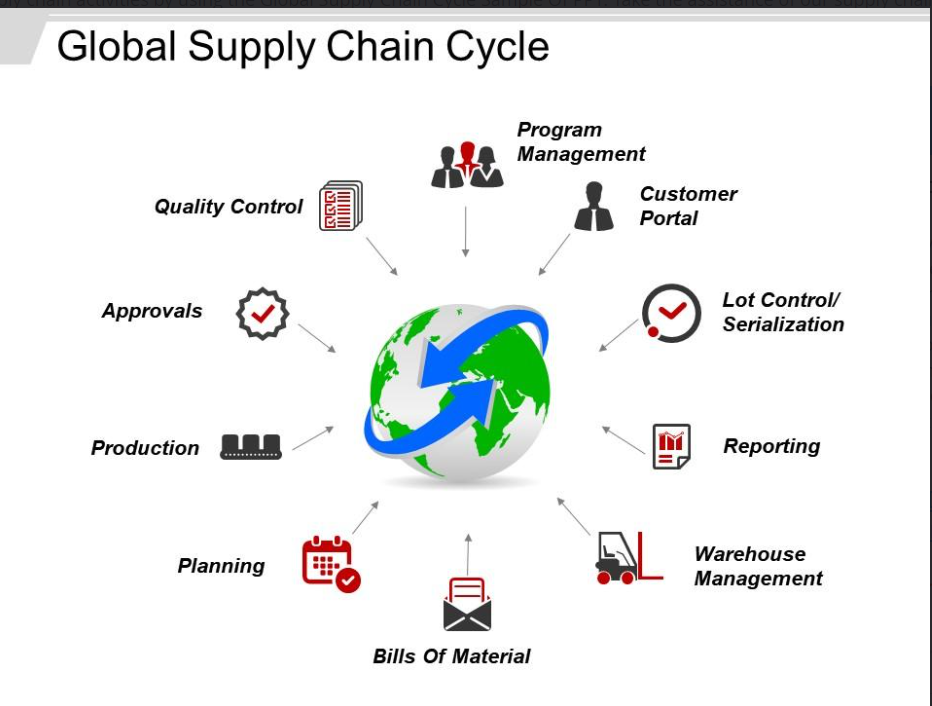Optimizing Global Supply Chains for Efficiency and Resilience
In today’s dynamic and interconnected business landscape, Global Supply Chain Management (GSCM) plays a pivotal role in ensuring the smooth flow of goods and services across borders. Effective GSCM not only enhances efficiency but also fortifies supply chains against unforeseen disruptions. Let’s delve into key strategies for optimizing global supply chains.
1. Strategic Network Design
The foundation of an efficient global supply chain lies in its network design. Companies must strategically map out their suppliers, manufacturers, and distributors to minimize transportation costs and reduce lead times. A well-designed network enables businesses to respond swiftly to changes in demand and adapt to market dynamics.
2. Technology Integration
In the era of Industry 4.0, technology is a game-changer for global supply chains. Integration of advanced technologies such as IoT, AI, and blockchain enhances visibility, traceability, and real-time monitoring. These tools empower organizations to make data-driven decisions, predict disruptions, and optimize inventory levels.
3. Risk Management Strategies
Global supply chains are susceptible to various risks, ranging from geopolitical tensions to natural disasters. Implementing robust risk management strategies is imperative. Diversifying suppliers, creating contingency plans, and leveraging data analytics to identify potential risks are crucial steps in building resilient supply chains.
4. Collaboration and Partnerships
Collaboration is key in the realm of global supply chain management. Building strong partnerships with suppliers, manufacturers, and logistics providers fosters a collaborative ecosystem. Shared information and resources contribute to improved efficiency, reduced costs, and increased agility in responding to market fluctuations.
5. Sustainability Initiatives
Sustainability is no longer a buzzword; it is a fundamental aspect of modern supply chains. Companies are increasingly integrating eco-friendly practices into their operations. From sourcing raw materials responsibly to adopting green logistics, sustainability initiatives not only benefit the environment but also enhance a company’s reputation and appeal to conscious consumers.
6. Talent Development and Training
The complexity of global supply chains requires a skilled workforce capable of navigating challenges and embracing technological advancements. Investing in talent development and training programs ensures that employees are equipped with the necessary skills to manage international logistics, compliance issues, and evolving industry trends.
7. Continuous Improvement Culture
The global business landscape is in a constant state of flux. Companies that thrive in this environment are those that embrace a culture of continuous improvement. Regularly assessing and refining supply chain processes, adopting best practices, and incorporating feedback from stakeholders contribute to an agile and responsive supply chain.
In the pursuit of optimizing global supply chains, businesses must stay abreast of emerging trends and technologies. The dynamic nature of the global marketplace demands adaptability and foresight. As companies navigate the complexities of GSCM, leveraging technological innovations becomes paramount.
To stay ahead in this fast-paced environment, consider integrating Global Supply Chain Management solutions. Reltix offers state-of-the-art tools and expertise to streamline your supply chain processes. Learn more about how Reltix can empower your business here.
In conclusion, by strategically designing networks, embracing technology, managing risks, fostering collaboration, prioritizing sustainability, investing in talent, and nurturing a culture of continuous improvement, businesses can optimize their global supply chains for enhanced efficiency and resilience.




:max_bytes(150000):strip_icc()/open-septic-tank-in-yard-while-bring-pumped-out-174030025-b87921a99e5748fb9997eebf4b203f3b.jpg)





